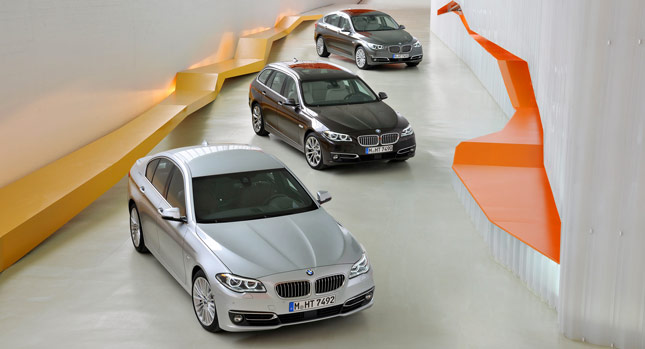Commercial success is always going to be the primary objective for any company and their products, but sometimes, it does come at a cost, especially when we’re talking about premium goods.
You see, it’s not only the quality, design and feeling of a luxury product that matter to consumers, but also what kind of a statement they make and how special and exclusive it is. For example, if everyone and their mothers had a Rolls Royce or a Ferrari parked under their garage, then said brands would ultimately lose the exclusivity variable from the premium equation.
To some extent, BMW is experiencing this kind of loss, not only due to its ever-expanding reach into more categories and niches than most mainstream brands, but also because many of its core products are so successful that they’re a dime a dozen on the roads nowadays.
On Friday, BMW said that its 5-Series range that comprises a four-door sedan, a Touring (station wagon) and the spacious, but visually confused/awkward Gran Turismo, sold a grand total of 366,992 units worldwide in 2013 (Cadillac, as a brand, sold around 251,000 cars globally), making it the most successful “business model” in the world. You could take the Bavarian firm’s choice of words as an indication of how it could be slowly shifting its interest from the “Ultimate Driving Machine” to more vanilla flavored automobiles for the masses…
We’re not saying success is a bad thing, but often, it does result to a watering-down of a company’s products and core philosophy in order to keep up with the sales numbers. Do you think that this is happening to BMW? Tell us your thoughts in the comments below.
PHOTO GALLERY











